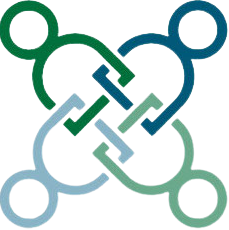
Webinars
IARSLCE is pleased to present a four-part spring webinar series to explore contemporary and cutting edge approaches to community-engaged research. We invite you to learn about youth participatory action research, data literacy and quantitative analysis of big data, trends and gaps in community-engaged dissertation research, and Carnegie Co-Labs. Sessions will include interactive conversations, as well as dynamic presentations by scholars in our field.
Each session is $15 to attend, or $50 for the whole series. Current IARSLCE members can register for FREE using a special promo code. Login to the Members portal for more information.
-
March 20, 2024 at 1pm PT / 3pm CT / 4pm ET
Involving youth as active participants in research empowers them to find solutions to society’s problems. Through this process, young people transform from being perceived as passive or accepting youth to active, engaged, responsible citizens, building their capacity for active citizenship. Engaging in research also allows young people to build mutually liberatory partnerships that equalize relations between youth and adults. A framework used to engage youth as researchers is called Youth Participatory Action Research (YPAR). YPAR enables students to apply a critical lens to their environments, which helps them uncover truths behind structural exploitation, oppression, and opportunities for resistance. The “praxis” component of YPAR calls young people to act along with their adult allies to redress systemic issues impacting their community. This research framework is particularly salient after young people experienced isolation and learning losses during the COVID-19 pandemic. This panel introduces the components of YPAR and brings in perspectives from students who have participated in a summer YPAR program at Merrimack College.
Participants
Dr. Kirstie Lynn Dobbs (moderator) is the Director of Early College and Faculty Community Engagement Strategy at Merrimack College. Her expertise focuses on young people's political participation and youth inclusion in diplomacy, elections, civil society, and the economy.
Myah Salazar Salvador is a senior at Abbott Lawrence Academy and one of the early college students at Merrimack College. “Some clubs I am part of at Lawrence High School are musical theater, student government, and the National Honor Society. I have taken eight courses at Merrimack, two of which were taught by Dr.Dobbs! Thank you for your time; I am excited to speak to you about my YPAR experience over the summer.”
Nathan Persampieri is from Newton, MA. “I took this course because I wanted to learn how to use my voice to make a change in my community. After graduation, I want to work at a non–profit advocacy organization or in government/politics. I am passionate about community work and advocating for people with disabilities. You can read more about me and my work here.”
Moismely Diaz is a current senior in high school attending Abbott Lawrence Academy and an Early College student at Merrimack College. “My goal in life is to get the opportunity to help others using my unique talents. I will double major in Psychology and Criminal Justice at Northeastern University in the Fall.”
Coraliz Ortiz is Interested in activism, fashion, cuisine, and social issues. “I am passionate about integrating activism into my hobbies and interests, such as fashion and sports, aiming to identify meaningful areas of impact within these domains. Through advocacy and community engagement, I work towards fostering an environment that celebrates and embraces diversity and inclusion.”
-
April 23, 2024 11:30am PT / 1:30pm CT / 2:30pm ET
This presentation demystifies modern approaches to causal inference by exploring the concept of the counterfactual to encourage research on service-learning and community engagement that yields defensible causal conclusions about the effectiveness of engagement practices. While many of these approaches apply higher order statistical and quantitative methods, this presentation will break down the complex concepts to introductory and exploratory levels for an audiences without backgrounds in applied statistical methods. We will root the conversation in the potential outcomes framework, which is at the heart of the modern approach to and understanding of many causal designs.
Participants will be able to identify how applications of the potential outcomes framework can be applied to research projects in SLCE. The presentation will review and clarify the core assumptions of the potential outcomes framework, enabling participants to evaluate how these assumptions may affect a design and plan their research designs accordingly.
-
May 15, 2024 3pm PT / 5pm CT / 6pm ET
How are doctoral students researching community engagement? What can the field learn from their experience? Graduate students often struggle to find references and methodologies to frame their research projects. They borrow from other disciplines and fields and must navigate the onto-epistemological tensions of weaving in traditional research methodologies with engaged scholarship principles. Engaged-researchers and graduate students studying community engagement are then challenged to identify methodologies that will advance their community-engaged research projects on their own. This webinar will analyze the trends and gaps in research methods of recent doctoral research (36 dissertations on community engagement published between 2018 and 2022) and build on the challenges and insights from the GradSN-sponsored roundtable at the 2023 IARSLCE Conference. Identified challenges included, epistemological, ontological, and ethical challenges, research methods, institutional and structural challenges, and support mechanisms.
Participants:
Matías G. Flores (Chile) is a Ph.D. candidate in Development Sociology at Cornell University. He uses a socio-historical approach to study the history of community engagement practices in Latin America, the politics and university imaginaries of the next-generation engaged-scholars in Chile, and the possibilities of global dialogue in higher education community engagement.
Emily Phaup, Ph.D. is the Professional Development Manager for Campus Compact and past Chair of the Graduate Student Network of IARSLCE. In 2022, she completed her Ph.D. in Education at Oregon State University in with a focus on institutional support for community engaged faculty. Emily currently resides in Mosier, Oregon.
Atsuko Kuronuma is an Assistant Professor by Special Appointment in Education at International Christian University in Tokyo. Her dissertation research focuses on the case of SLCE in a liberal arts college in the US. Specifically, she aims to translate, reinterpret, and apply civic learning practices institutionalized in the US to her context in Japan, where significant differences in cultural traditions and social norms exist.
Heather Craigie is the Associate Director of John Carroll University’s Center for Service-Learning and Social Action. She is an Ed.D student at Northeastern University, where her dissertation research focuses on critical consciousness development through community-engaged leadership positions. She and her family live in Shaker Heights, Ohio.
-
June 2024
